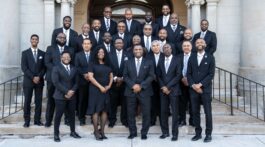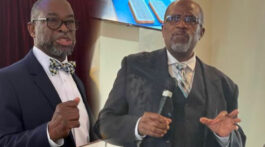Sabbath School Lesson for May 25-31, 2019
Overview
Times of loss for the family studied this week included…
- loss of health (why Jesus spent most of His ministry healing people)–Sunday
- loss of trust (particularly with an adulterous partner)–Monday
- loss of trust (when abusive behavior is present in the home)–Tuesday
- loss of freedom (how addictions affect the family)–Wednesday
- loss of life (handling end of life issues)–Thursday
Introduction
All through the Bible, we see the impact of losses of one kind or another. Of course, the first loss of mankind was our loss of innocence. Adam and Eve replaced innocence with blame, selfishness, and a desire to control each other.
And, of course, losing their beautiful garden home in Eden must have been a terrible loss with the thorns and weeds they had to endure, let alone the predator animals that roamed the earth after sin.
They may have then witnessed the first loss of life when God killed animals to provide clothing to cover their nakedness, and later what a heartache when their eldest son Cain killed his brother Abel.
How we handle losses in the family can determine our closeness with God, who has felt untold losses and challenges as well. Jesus was present on this earth at a time when physical and mental suffering was widespread.
Most of His ministry was spent healing people of their diseases, addictions, and disabilities. He experienced betrayal and violence too, which, for us, can lead to a total loss of trust in those closest to us. Even death came close to Jesus, as He witnessed the grief of Mary and Martha, and many others, when they lost family members to what’s been called our “last enemy”.
Memory Text: “Yet indeed I also count all things loss for the excellence of the knowledge of Christ Jesus my Lord, for whom I have suffered the loss of all things, and count them as rubbish, that I may gain Christ.” Philippians 3:8 NKJV
Despite the loss of everything on this earth, Paul realized that with Christ, none of it matters. Having Him to lean on in times of loss is all we really need. The promise of His presence and the promise of a resurrection can provide us with the ability to handle any loss that comes to us or our family.
Sunday: Loss of Health
If we live long enough, almost all of us can expect to experience a loss of health. If not our own, then for a family member. Caring for a loved one with an illness, disease or chronic condition is one of the most arduous tasks any individual can undertake. And almost all of us are called to be a caregiver at some point in our lives, impacting innumerable families at any given time.
“There are only four kinds of people in the world. Those who have been caregivers. Those who are currently caregivers. Those who will be caregivers, and those who will need a caregiver.” ~Rosalyn Carter
Sickness, and the pain and suffering that goes with it, is a mystery–a product of our fallen world. But we are guaranteed freedom from it at the resurrection. If we don’t allow it to break us, it…
- will give us more compassion for those who are hurting
- can help us be able to comfort others in need
- allows us to minister to our loved ones more effectively
Discussion Questions:
Read Mark 5:22-23, Matthew 15:22, Luke 4:38, 39, and John 4:46-47. What is the most effective way to be a caregiver for a family member?
Read Psalm 22:1-4 and Mark 15:34. How do we know that God understands our feelings of being forsaken?
Read 2 Corinthians 1:3-5. What makes Christ able to comfort us? How do our sufferings in turn enable us to comfort others? What’s the difference between compassion and empathy?
Monday: Loss of Trust
Being betrayed by someone can be devastating, but when the betrayal is by a family member, it is doubly felt. The loss of trust that results can be very difficult, and in some cases impossible, to rebuild.
The betrayal that is felt when adultery has entered a marriage is probably the most pronounced and common form of betrayal in the family. When marital vows are trampled, all the family suffers in some way.
Rebuilding the trust that is lost requires time and patience, and a commitment by all family members to make it happen. There must be…
- a clear acknowledgment of the offense by the person responsible for the hurt
- a forgiving spirit on the part of those who were affected by the betrayal
- renewed vows of commitment that include complete openness and disclosure
- time–it doesn’t happen overnight, but may require months or even years for complete trust to be restored
Many couples, who were able to rebuild their trust in this way find that they enjoy a deeper, more satisfying relationship that develops into an even happier marriage than before. Indeed, “with God nothing will be impossible.” Luke 1:37 The key is doing it with God.
Discussion Questions:
Read 1 Peter 5:6, 7. What is needed when a family betrayal leads to a loss of trust?
Read James 5:16 and 1 John 4:9-11. How can there be prayer and forgiveness for an offender, even when acknowledgement and confession by the offender doesn’t happen? Why is it important for this to happen?
Read Matthew 6:14, 15 and 18:21, 22. Why does God’s forgiveness depend on our ability to forgive? Why is it sometimes necessary for us to forgive multiple times for the same offense? How is this accomplished?
Tuesday: Loss of Trust, Continued
Besides adultery, there are other ways to break the trust of family members. Abusive behavior is found in all kinds of families. Whether the abuse is physical, verbal, emotional, sexual, or even just family neglect, people can lose faith in each other and the whole family suffers.
Domestic violence isn’t just a product of modern times though. We see examples of it in the Bible. Most notable was the violent way Joseph’s brothers threw him into a pit and sold him to slave owners in Egypt (Genesis 37:17-28).
We also have the story of incest when one of David’s sons raped his sister (2 Samuel 13:1-22). Let alone when several of Israel’s kings offered their children to pagan gods (2 Kings 16:3, 17:17, 21:6).
Although abusive behavior can’t be explained or excused any more than alcoholism, and other addictions can, it must be remembered that victims of it are not to be blamed or to feel responsible for the abuse.
Professional help is definitely needed when these behaviors are present in the home, but change for the abuser will only happen when he or she takes responsibility for the abuse and seeks the help needed to change.
Keep praying for the whole family in these situations. God can change even an abuser’s heart, when full repentance and restitution are made. In any case, agape love (God’s love) is powerful enough for healing to take place, resulting in the best outcomes for all family members.
Discussion Questions:
Read Romans 13:10. When harm is being done, what kind of love may be missing in the home?
Read 1 John 4:18. When fear is present in the home, what kind of love is missing?
Read Ephesians 3:20. Why is there always cause for hope when domestic violence is present in a family? Who can make a difference in the outcome for these situations?
Wednesday: Loss of Freedom
Although scientists have been able to identify the parts of the brain where our cravings and desires are located, no one has been able to explain the addictive nature of these cravings that at times seem to take over and control our lives.
The harmful habits of drugs, alcohol, tobacco, gambling, pornography, sex, shopping, or even food create a kind of slavery, a loss of freedom, that maintains a grip on the whole family. The Bible says in essence that we are slaves of whatever controls us (2 Peter 2:19).
Recognizing that sin and addiction are not the same thing, it is still a fact that often our sin can turn into an addiction. Some of the sins that may turn into an addiction are pointed out in 1 John 2:16…
“For all that is in the world–the lust of the flesh, the lust of the eyes, and the pride of life–is not of the Father but is of the world.” NKJV
Although professional help of some kind can certainly be helpful and often necessary when addictions are present in the family, the only lasting remedy for sin or addiction is a surrender to a new Master…Jesus Christ. Under His authority, we can find freedom from harmful addictions and the family can once again be a safe haven for its members.
Discussion Questions:
Read James 1:13-15 and 1 John 2:16. What are some of the desires of the world that tempt us?
Read Romans 6:12, 13. How do we keep our desires from ruling us, causing us to sin?
Read Matthew 6:24. Why was “mammon” (Aramaic for “riches”) mentioned as something we serve? How can money control us, like an addiction?
Thursday: Loss of Life
Although the loss of health, trust, and freedom cause much sadness in the family, we can’t deny that the loss of life touches family members in a unique, powerful way. The emotional aftereffects of grief are different for everyone, but recovery is possible in the light of the resurrection.
In what seems like a moment, a “twinkling of an eye” the Bible says, Jesus comes in the clouds and raises our “sleeping”, righteous loved ones to life, and we, who are still alive, meet with them in the air (1 Corinthians 15:51, 52, 1 Thessalonians 4:16, 17). And we can trust our Judge to deal with the unrighteous in a just and merciful way as well after the millennium.
Comforting are the words that someday “God will wipe away every tear from their eyes; there shall be no more death, nor sorrow, nor crying. There shall be no more pain, for the former things have passed away.” Revelation 21:4 NKJV
Discussion Questions:
Read Romans 8:31, 32, 35, 37-39. How do we survive any and all losses on this earth?
Read Revelation 7:17, 21:1-4 and Isaiah 25:8. When does God wipe away all our tears?
Read 1 Corinthians 15:51, 52, Matthew 24:29-31, and 11:11-14. When event does the “trump” signify? Why is death called a sleep in the Bible?
And, finally…
Ellen White’s eldest son, Henry, died of pneumonia at the age of sixteen. His mother remembers him saying, as he lay dying, “A bed of pain is a precious place when we have the presence of Jesus.” He requested that he be buried near his little brother, so they would be near each other in the resurrection.
This story reminds us of the two greatest blessings of the Father that are able to help family members deal with any loss that comes their way…
- the presence of Jesus
- the promise of a resurrection
It is also important to remember that…
“Those who have borne the greatest sorrows are frequently the ones who carry the greatest comfort to others, bringing sunshine wherever they go. Such ones have been chastened and sweetened by their afflictions; they did not lose confidence in God when trouble assailed them, but clung closer to His protecting love.” ~Selected Messages, book 2, p. 274.
No wonder Paul claimed that His “strength is made perfect in weakness” and “when I am weak, then I am strong.” (2 Corinthians 12:9, 10).
Therefore, our losses can become our most wonderful gains!
Next Week’s Lesson: Little Times of Trouble
To read the Sabbath School Lesson Quarterly or see more resources for its study, go to https://www.absg.adventist.org/
Other Outlook blogposts by Teresa Thompson, are at http://outlookmag.org/author/teresathompson/










